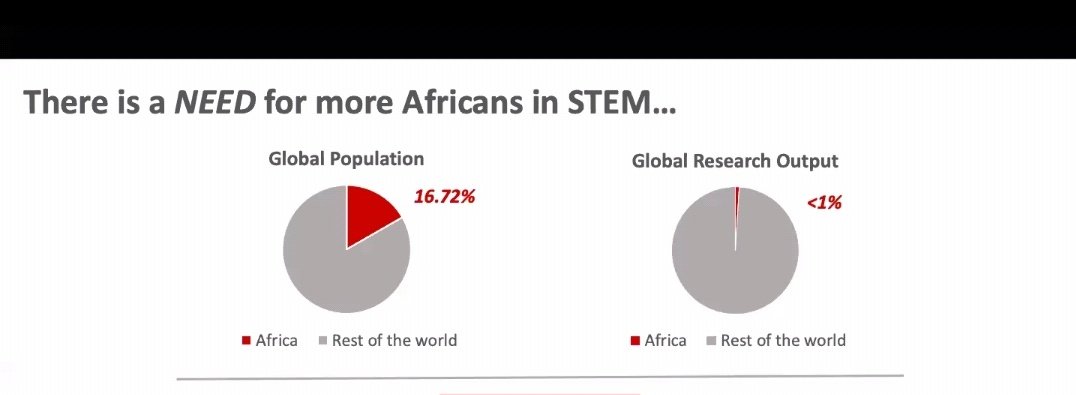
Let's talk about scientific & #AfricansInSTEM.
Quick disclaimer: this info I report is from research from books, sites etc. I don't claim to know it all. So if I am wrong I am very willing to correct my mistakes & learn. Let's converse. That's exactly what today is about
1/n
Quick disclaimer: this info I report is from research from books, sites etc. I don't claim to know it all. So if I am wrong I am very willing to correct my mistakes & learn. Let's converse. That's exactly what today is about
1/n
Here's some stats for you. According to an article by Elsiver (bitly.com) Africa accounts for <1 percent% of global research output. Despite having 16.72% of global population.
I love this visual made by @Tasia1409 which gives us a visual understanding.
2/n
I love this visual made by @Tasia1409 which gives us a visual understanding.
2/n

When some people think of Africa, they think it's a monolith. There are 54 countries. Let's see where this 1% comes from. In a @nature country research outputs report from
1 De'19 - 30 Nov'20 shows South Africa is leading. Here's the top 20.
🔗 :shorturl.at/hjtHK
3/n
1 De'19 - 30 Nov'20 shows South Africa is leading. Here's the top 20.
🔗 :shorturl.at/hjtHK
3/n

Correction to the link from above
go.nature.com/3u2luQ6
go.nature.com/3u2luQ6
Without cheating (Google 😅) which scientific field do you think contributes the most in terms of scientific research output by #AfricansInSTEM?
Let's see your thoughts and if so, tell me why you think so.
Let's see your thoughts and if so, tell me why you think so.
• • •
Missing some Tweet in this thread? You can try to
force a refresh





